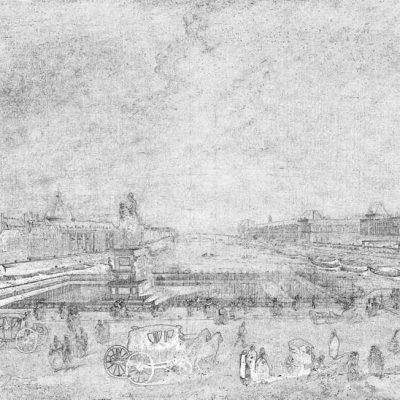At last the coast of France was seen.
“Have you ever been to France, Mr. Martin?“ said Candide.
“Yes,” said Martin, “I have traveled through several provinces. There are some where half the inhabitants are mad, some are too cunning, others that are commonly rather gentles and stupids: others with a beautiful spirit; and, in all, the chief occupation is love; the second, is meditating; and the third, to say nonsense.“
“But, Mr. Martin, have you seen Paris?“
“Yes, I have seen Paris; it holds of all these species; it is a chaos, it is a press in which everyone seeks pleasure, and where almost nobody finds it, at least as it seemed to me. I stayed there a few times; on arriving there I was robbed of all I had, by thieves, at the fair of St. Germain; they took me for a thief, and I was eight days in prison; after which I made myself a corrector of printing, in order to gain enough to return to Holland on foot. I knew the scribbling scoundrel, the cabalante rabble, and the convulsive scoundrel. People say that there are some very polite people in this town: I want to believe it.“
“For my part, I have no curiosity to see France,” said Candide; “you can easily guess that when one has spent a month in Eldorado, he no longer cares about seeing anything on earth but Miss Cunegonde: I will wait for her at Venice; we will cross France to go to Italy; will you accompany me?“
“Very willingly,“ said Martin, “it is said that Venice is good only for the noble Venetians, but that, nevertheless, foreigners are very well received when they have a great deal of money; I have none; you have them, I will follow you everywhere.“
“By the way, said Candide, do you think that the land was originally a sea, as is asserted in this large book belonging to the captain of the ship. [The Bible. We read in Genesis, chapter 1, verse 2: Tenebrae erant super faciem abyssi, words that De Maillet gives as having the same idea as this verse of Ovid (Metam., 1, 15): “Quaque erat et tellus, illic et pontus et aer.”]?“
“I do not believe it at all,” said Martin, “nor of all the reveries which have been passed on to us for some time.“
“But to what end has this world been formed?“ said Candide.
“To make us mad,“ replied Martin.
“Are you not much surprised,” continued Candide, “of the love which these two daughters of the land of the Oreillons had for these two monkeys, and of which I have told you the adventure?“
“Not at all,” said Martin, “I do not see what this strange passion has; I have seen so many extraordinary things, that there is nothing extraordinary for me.“
“Do you think,” said Candide, “that men have always mutually massacred each other as they do today? that they have always been liars, deceivers, perfidious, ungrateful, brigands, weak, fickle, cowardly, envious, greedy, drunkards, avaricious, ambitious, sanguinary, calumniators, debauched, fanatics, hypocrites, and fools?“
“Do you think,” said Martin, “that the hawks always ate pigeons when they found them?”
“Yes, no doubt,” said Candide.
“Well!” said Martin, “if the hawks have always had the same character, why do you want men to change theirs?“
“Oh! said Candide, “there is much difference, for free will.”
By reason of this, they arrived at Bordeaux.











Leave a Reply